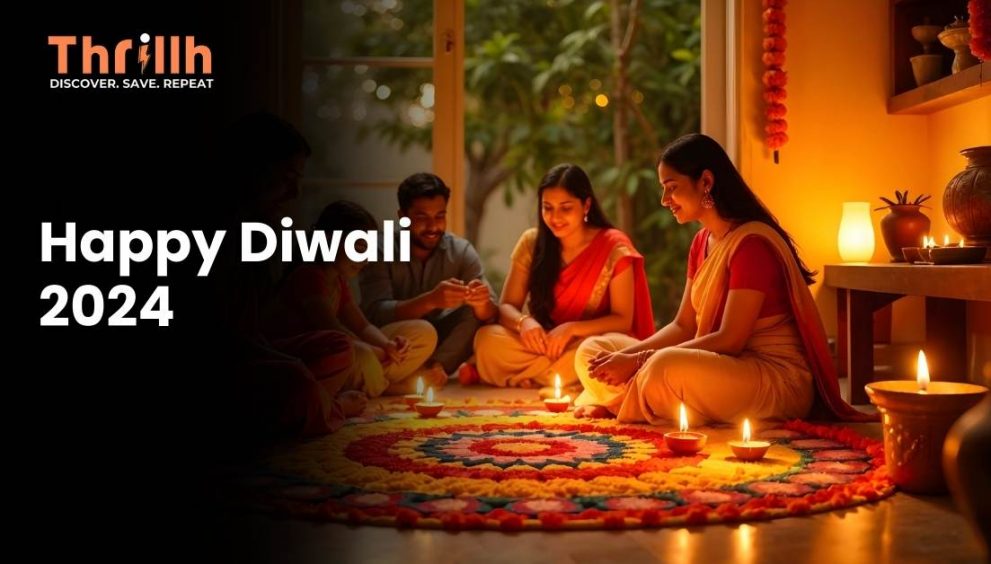Happy Diwali 2024: Celebrating the Festival of Lights with Joy and Meaning
Happy Diwali 2024! Diwali, or the Festival of Lights, is one of the most cherished festivals in India and worldwide, celebrating the triumph of light over darkness, good over evil, and knowledge over ignorance. This year, Diwali falls on November 1, and people from all walks of life are preparing to welcome this auspicious festival with joy, excitement, and reverence.
The festival’s roots stretch back thousands of years, with diverse stories and rituals symbolizing the power of goodness and the importance of unity, love, and peace. Diwali is not just a celebration of lights but also an opportunity to reflect on personal growth, build relationships, and inspire positive change. From the sparkle of diyas to the vibrance of rangolis, let’s explore the history, customs, and unique ways to make Diwali 2024 truly memorable.
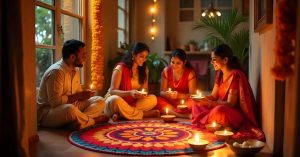
The History of Diwali: Why Do We Celebrate Diwali?
The story of Diwali varies across regions and cultures, with many narratives adding to its rich significance:
- Lord Rama’s Return to Ayodhya
One of the most famous stories behind Diwali is the return of Lord Rama to Ayodhya after a 14-year exile. Upon his return, the people of Ayodhya lit diyas (oil lamps) throughout the city to celebrate his victory over the demon king Ravana, symbolizing the triumph of good over evil. - The Story of Goddess Lakshmi
In many regions, Diwali is celebrated as the day Goddess Lakshmi, the deity of wealth and prosperity, emerged from the ocean during the cosmic churning of the sea (Samudra Manthan). People worship Lakshmi during Diwali, hoping for prosperity and blessings. - The Defeat of Narakasura by Lord Krishna
In southern India, Diwali commemorates the victory of Lord Krishna over the demon Narakasura, who had terrorized the people. His defeat signifies the end of oppression and the beginning of a new dawn of peace. - Sikh Festival of Bandi Chhor Divas
For Sikhs, Diwali is celebrated as Bandi Chhor Divas, marking the day Guru Hargobind Ji was released from Mughal imprisonment. Sikhs worldwide light lamps to honor freedom and righteousness. - Mahavira’s Nirvana
In Jainism, Diwali holds significance as it marks the day Lord Mahavira attained Nirvana (spiritual enlightenment). Jains celebrate Diwali by lighting lamps and praying for spiritual growth.
Key Diwali Traditions and Celebrations
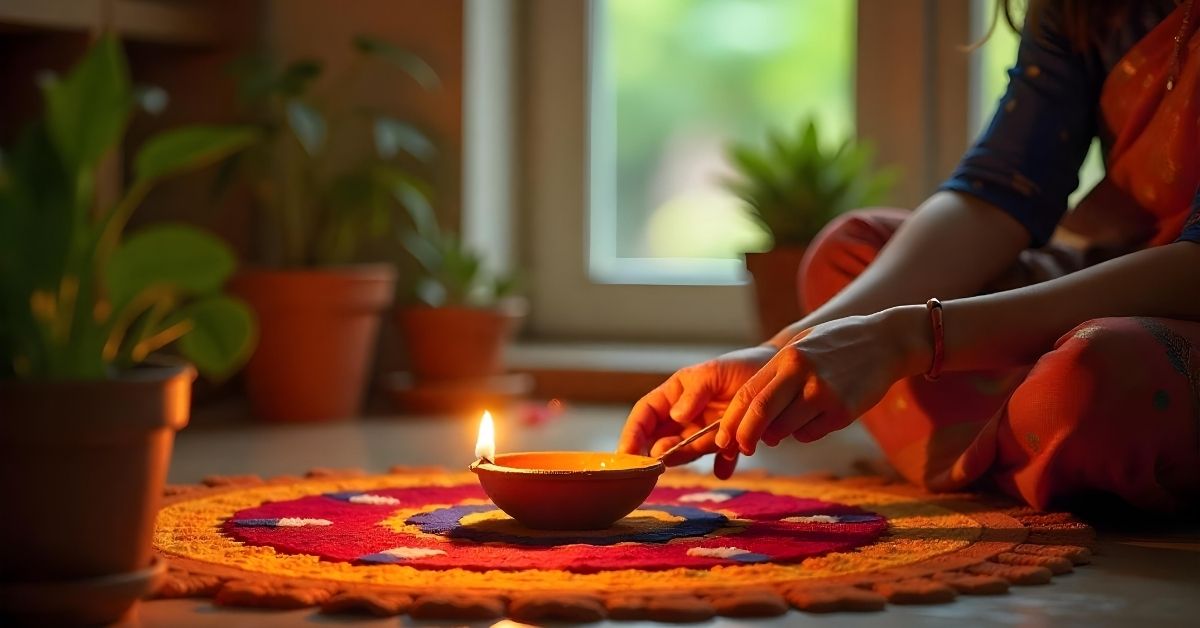
Each Diwali celebration centers on timeless traditions that add depth and joy to the festival. From cleaning homes to preparing special dishes, each ritual is filled with meaning.
1. Cleaning and Decorating Homes
The days leading up to Diwali are spent cleaning, repainting, and decorating homes. This tradition signifies removing negativity and creating a welcoming environment for Goddess Lakshmi, believed to visit homes during Diwali night.
2. Lighting Diyas and Candles
Lighting diyas, candles, and lanterns are essential to Diwali celebrations. Diyas are often placed around homes, rooftops, and windows to guide Lakshmi and keep away negative energy. In recent years, eco-friendly diyas made from clay or recycled materials have become popular as people focus on sustainable celebrations.
3. Creating Rangolis
Rangolis, vibrant and intricate designs made from colored powders, flower petals, and rice, are created at the entrance of homes. Rangolis not only add beauty but also symbolize happiness, prosperity, and the welcoming of positive energy.
4. Worship and Prayers: Lakshmi Puja
The main Diwali ritual involves the worship of Goddess Lakshmi. Families gather to perform Lakshmi Puja, which includes offerings of sweets, flowers, and prayers. Many people also honor Lord Ganesha, the remover of obstacles, to invite prosperity and good fortune.
5. Exchanging Gifts and Sweets
Diwali is a time for exchanging sweets, dry fruits, and gifts with loved ones as a gesture of goodwill. Traditional sweets like laddoos, barfis, and gulab jamuns are popular, alongside chocolates, gourmet treats, and personalized gifts.
Eco-Friendly Diwali 2024: Celebrating Consciously
In recent years, there’s been a growing awareness of celebrating Diwali in an eco-friendly way to reduce pollution and waste. Here are some ways to enjoy an environmentally friendly Diwali:
1. Use Eco-Friendly Diyas and Candles
Opt for biodegradable or reusable diyas and candles made from natural materials like clay, beeswax, or soy. Avoid plastic decorations and opt for sustainable choices to reduce waste.
2. Limit Fireworks and Opt for Green Crackers
Fireworks add excitement to Diwali but come with environmental costs. Green crackers emit lower levels of pollutants and are a better choice for a cleaner celebration.
3. Reduce, Reuse, Recycle
Create decorations from recyclable materials, reuse old decor items, and reduce plastic usage. You can make beautiful Diwali decor using paper lanterns, cloth torans, and reusable lights.
4. Choose Organic Rangoli Colors
Many store-bought rangoli colors contain chemicals that can harm the environment. Choose natural colors made from turmeric, rice powder, and flowers, which are safe for both the environment and animals.
5. Donate and Share with the Less Fortunate
Diwali is a time of abundance, and sharing with those in need can make it more meaningful. Donate clothes, food, or even volunteer time to help those in need, spreading joy and light beyond your home.
Diwali Recipes to Try in 2024
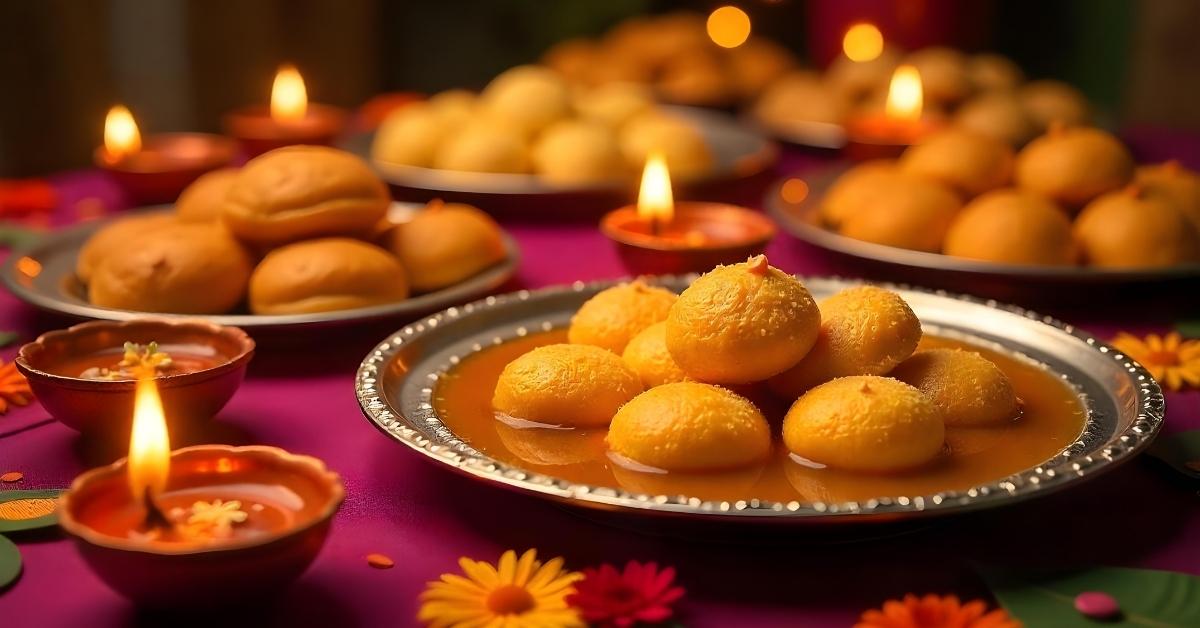
Food is at the heart of every celebration, and Diwali is no different! Here are some popular Diwali recipes you can try:
- Kaju Katli – A beloved sweet made from cashew nuts, sugar, and ghee, Kaju Katli is a rich treat that melts in the mouth.
- Gulab Jamun – Made from khoya (milk solids) and soaked in sugar syrup, this traditional favorite is perfect for celebrations.
- Samosas and Pakoras – Samosas with spiced potato filling and pakoras dipped in chickpea batter are savory snacks for gatherings.
- Rasgulla – Soft, spongy balls soaked in light sugar syrup, rasgullas add refreshing sweetness to any feast.
- Coconut Laddoo – Made with grated coconut and condensed milk, coconut laddoos are flavorful and easy to prepare.
Unique Ways to Celebrate Diwali 2024
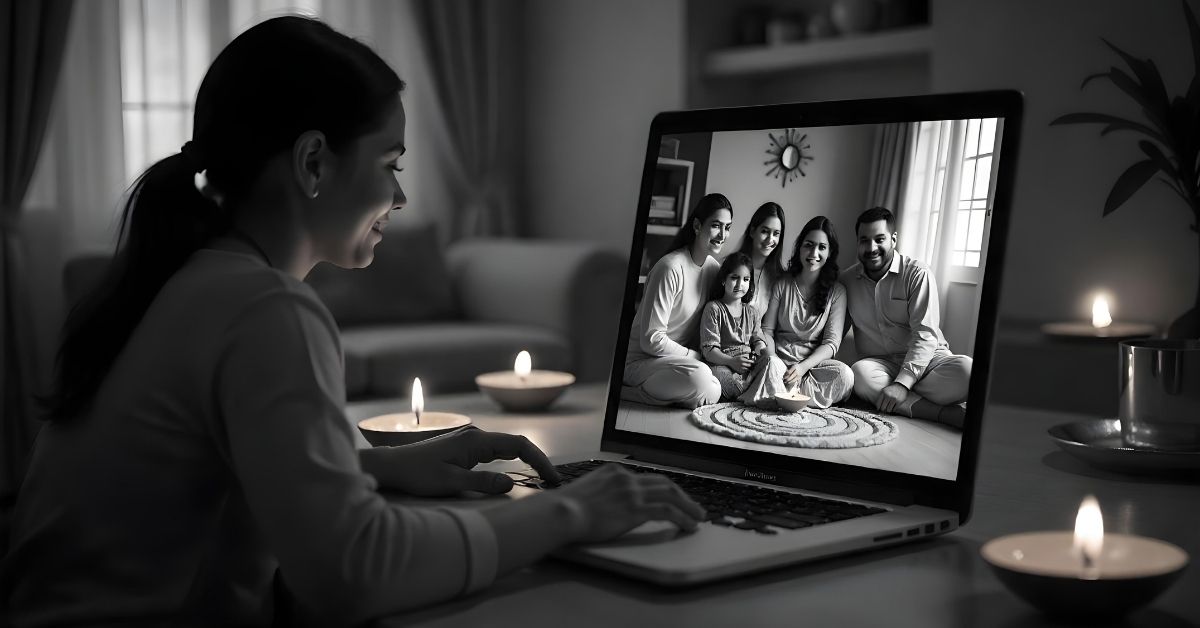
This Diwali, make your celebrations special with creative and meaningful additions to the traditional festivities:
- Host a Diwali Craft Workshop – Organize a session for making diyas, lanterns, and rangoli stencils.
- Plan a Family Photoshoot – Capture the joy of Diwali with a family photoshoot in ethnic attire.
- Create a DIY Flower Garland – Flower garlands made from fresh flowers bring vibrant color and fragrance to your home.
- Hold a Virtual Diwali Celebration – For loved ones who can’t join in person, celebrate virtually with shared recipes and online puja.
- Start a New Family Gratitude Tradition – Before festivities begin, gather and express gratitude for blessings from the past year.
The Significance of Diwali in Modern Times
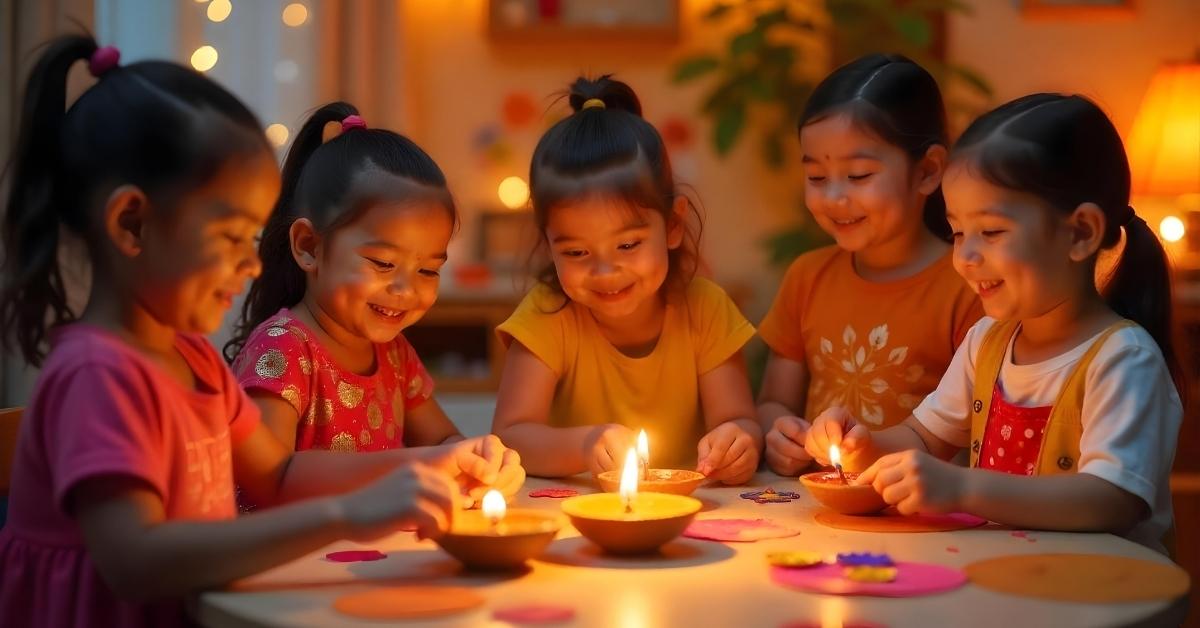
In today’s world, Diwali’s message of light over darkness holds even greater relevance. It encourages us to stand against challenges, rise above differences, and nurture kindness. Diwali brings families together, unites communities, and fosters joy. Beyond religious and cultural borders, Diwali has become a universal festival, celebrated across nations as a beacon of peace and positivity.
FAQs: Unique Questions About Diwali 2024
- Why is Diwali also known as the Festival of Lights?
Diwali is called the Festival of Lights because lighting lamps and candles represents the victory of light over darkness and good over evil. - Can non-Hindus celebrate Diwali?
Absolutely! Diwali is a festival of joy and positivity, and people from all faiths are welcome to celebrate it. - How can I celebrate Diwali if I am abroad?
You can recreate the spirit by decorating with diyas, cooking traditional foods, and connecting virtually with family. - Is it necessary to burst crackers for Diwali?
Firecrackers are common but not necessary. Many people now focus on diyas, candles, and cultural activities. - What is the best time to perform Lakshmi Puja on Diwali?
The best time for Lakshmi Puja is during the pradosh kaal, a two-hour period after sunset, based on the Hindu lunar calendar.
Conclusion
Diwali 2024 is a time for celebration, reflection, and renewal. It brings families and communities together to celebrate life, light, and love. As we light our diyas and share sweets with loved ones, let’s remember the deeper meaning of Diwali: the triumph of good over evil, the power of knowledge, and the joy of shared moments. Whether you’re celebrating with grand festivities or in a quiet, reflective manner, may this Diwali bring light, prosperity, and happiness to your life.
Happy Diwali 2024 to you and your loved ones!


